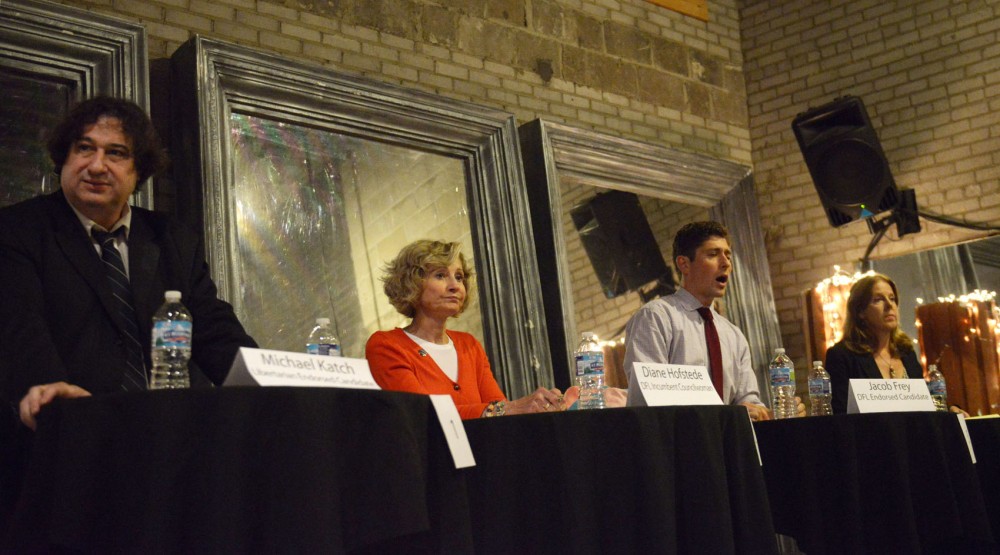Citizens of Northeast Minneapolis gathered at the Ritz Theatre on Tuesday night to sip local beer, listen to a bluegrass band and watch Minneapolis City Council candidates discuss subsidized housing for artists, pedal pubs and pop-up art galleries.
The Northeast Minneapolis Arts District and the League of Women Voters invited four candidates vying for a council seat in November to debate city development and issues facing local artists.
Candidates Diane Hofstede, Jacob Frey, Kristina Gronquist and Michael Katch are facing off to represent Ward 3, which includes parts of the University of Minnesota, Marcy- Holmes and Dinkytown.
Hofstede, the Democratic-Farmer-Labor incumbent, said she supports development with aesthetic appeal, citing Kelly Doran, a developer who’s claimed to have invested $150 million in luxury apartment complexes in the University district.
This was a change from last month, when Hofstede proposed a rare moratorium on all development in Dinkytown. The six-month moratorium would have delayed a new Doran project planned for the heart of Dinkytown, but it failed.
Green Party candidate Gronquist said it’s important to step back and look at all development with a “critical eye.”
Gronquist, a University alumna, previously told the Minnesota Daily that too much development could hurt Dinkytown’s traditional culture.
“I understand there is a need for density and safe housing for students, but the overbuilding is what concerns me,” she said Tuesday.
Promoting the arts
Candidates also discussed supporting local artists while increasing tourism in Northeast Minneapolis.
Frey said it should be easier for artists to display their work in Minneapolis without being stopped by excessive city ordinances.
“We need to enable artists to practice their trade,” Frey said.
Hofstede suggested the neighborhood increase its number of “pop-up” galleries where artists can display and sell their work in shops and restaurants.
She said she’s promoted pop-up galleries and restaurants during her time as a councilwoman, adding that she hopes to see more of them in the future. To promote artists and events in the district, Gronquist said the city should increase marketing and public relations efforts.
Katch said it’s the artist’s job to promote his or her work, not the city’s. He suggested individual artists and artist groups partner with the city’s hotel industry to promote events in the district.
“We have to take care of [artists] much like any entrepreneur,” Katch said. “But … they’re not entitled to special privilege.”
Frey rebutted Katch, saying that although the city government cannot create culture, it can help fund it.
Frey also said the city could further support local artists by increasing subsidized housing for artists.
Katch disagreed, saying subsidized housing should be reserved for those who need it most.
“Charity is important, but artists are not charity cases,” Katch said.








